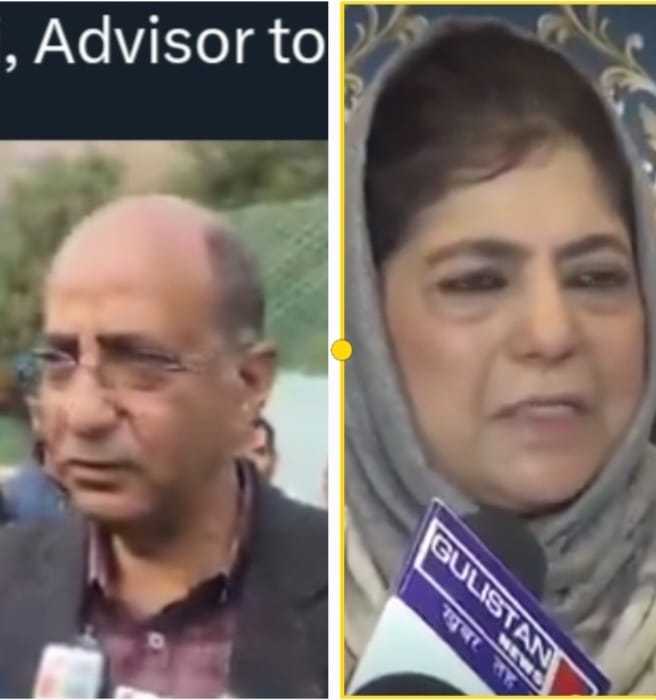Jammu/Srinagar: A fresh row over the Indus Water Treaty (IWT) has erupted, triggering a political debate across Jammu and Kashmir and in the country on social media.
For taking an anti-India stand on the Indus water Treaty, Mufti is in eye of storm on social media. On the other hand J and K CM Omar Abdulla has taken a pro-India stand seeking control over the rivers in Jammu and Kashmir.
Omar Abdullah has taken the opposite stance, criticizing the treaty’s restrictions on Jammu and Kashmir’s ability to harness its hydropower resources.
The controversy intensified as PDP Chief Mehbooba Mufti warned the central government against reopening the treaty with Pakistan, calling it a “BJP agenda” that risks destabilizing the region.
Mehbooba argued that raising the issue could ignite further tensions with Pakistan, saying, “This is a BJP narrative that could jeopardize lives in Jammu and Kashmir. Opening this Pandora’s box won’t be good for us.”
Omar contended that the agreement, which gives Pakistan control over the Indus, Chenab, and Jhelum rivers, hinders the region's development and demands a re-evaluation.
Nasir Aslam Wani, advisor to Omar Abdullah, echoed this sentiment, noting that the NC has long urged the government to compensate Jammu and Kashmir for the economic setbacks caused by the treaty rather than pushing to break it.
“We have consistently called for addressing the loss this treaty brings, not to dismantle it altogether,” Wani said.
The Indus Water Treaty, signed in 1960, was originally celebrated as a diplomatic triumph, allocating water resources between India and Pakistan to prevent conflict.
But over the years, criticism has grown, particularly from Jammu and Kashmir, where leaders argue that it stifles the region’s hydropower potential.
The Indus Water Treaty agreement between India and Pakistan was brokered by the World Bank.
Its main purpose was to prevent water disputes between the two countries after Partition.
Under the treaty, India received control over the eastern rivers—Beas, Ravi, and Sutlej. Pakistan was given control over the western rivers—Indus, Chenab, and Jhelum.
While India can use the western rivers for limited irrigation, power generation, and domestic use, the treaty mandates that it cannot obstruct Pakistan’s access to these waters.
The agreement was initially hailed as a success for diplomacy. It was seen as a way to ensure stability in a fragile region.
Leaders in Jammu and Kashmir argue that the treaty restricts the Union Territory’s hydropower potential.
Despite its rich river resources, the treaty’s rules limit Jammu and Kashmir’s ability to generate power or utilize the water fully. As a result, calls for a re-evaluation of the treaty have gradually grown louder.
There have also been multiple disputes and international legal battles between India and Pakistan over hydropower projects.
Pakistan has taken India to international arbitration several times, claiming that India’s projects on the western rivers violate the treaty.
Each time, international bodies have ruled for the most part in India’s favor, but these disputes have kept tensions simmering.
The PM Modi has to take a call on this as there are voices which stand for re valuation of the Treaty if not its annulment as Pakistan has been sponsoring terrorism in Jammu and Kashmir over the years.










